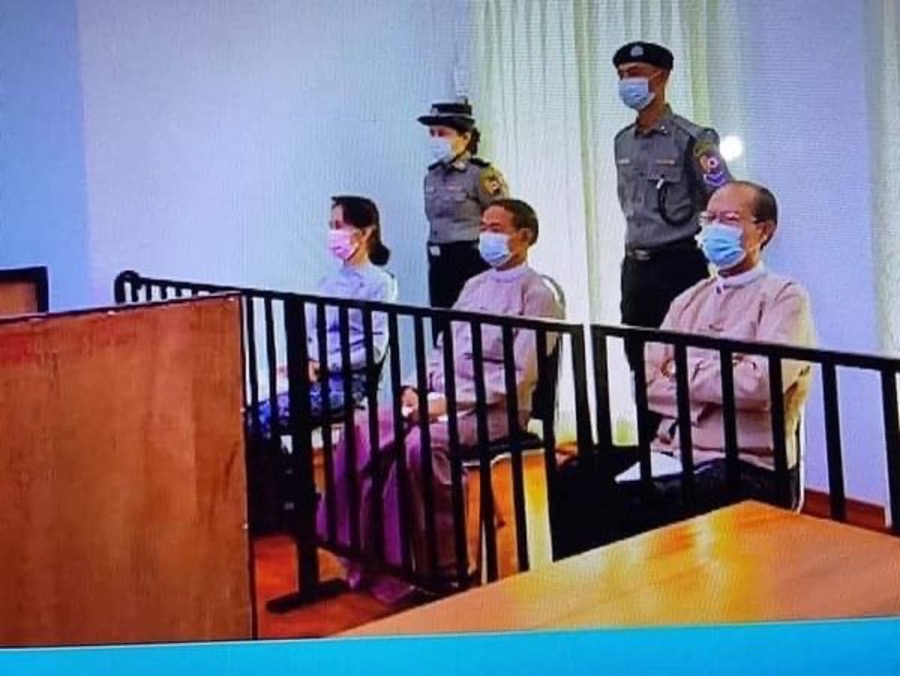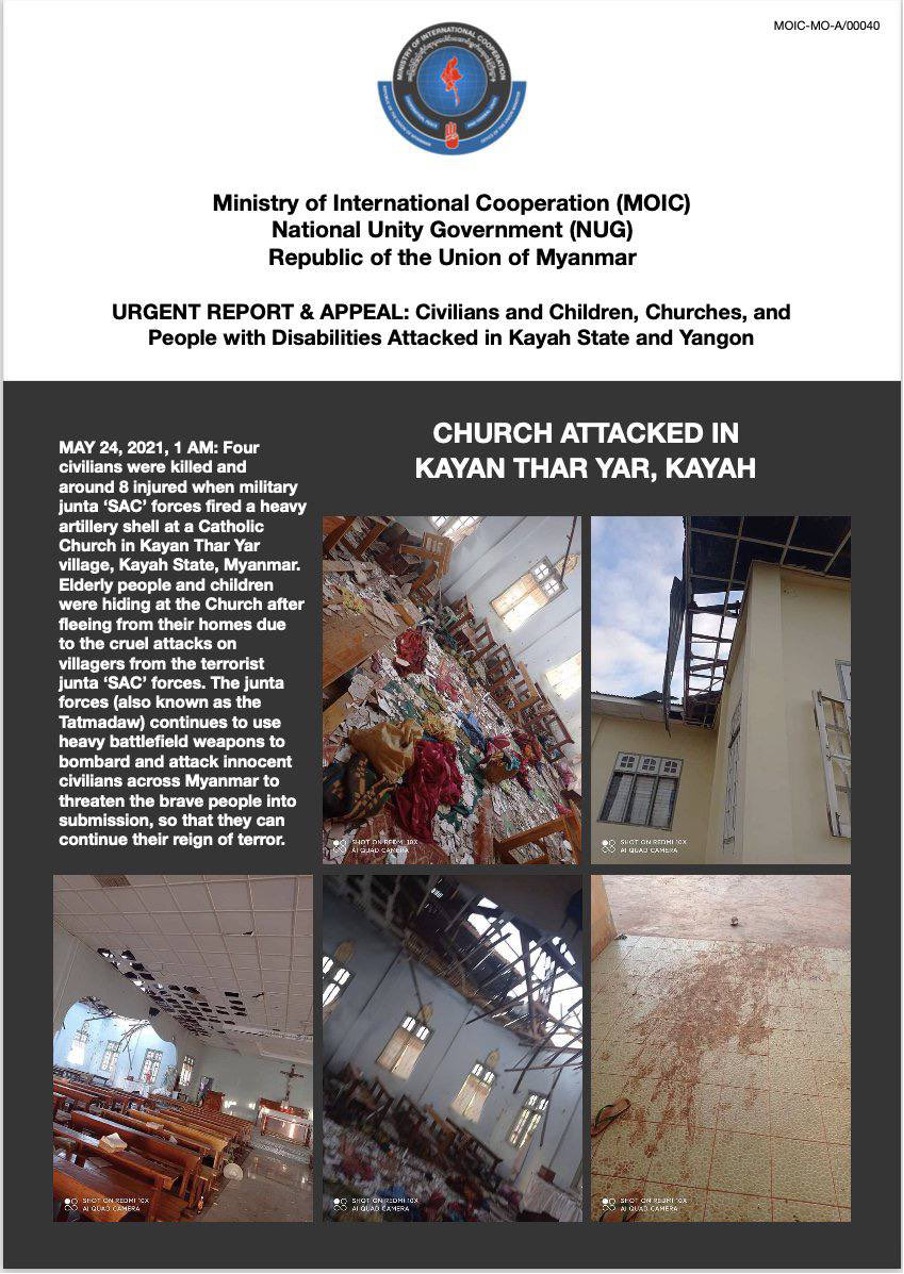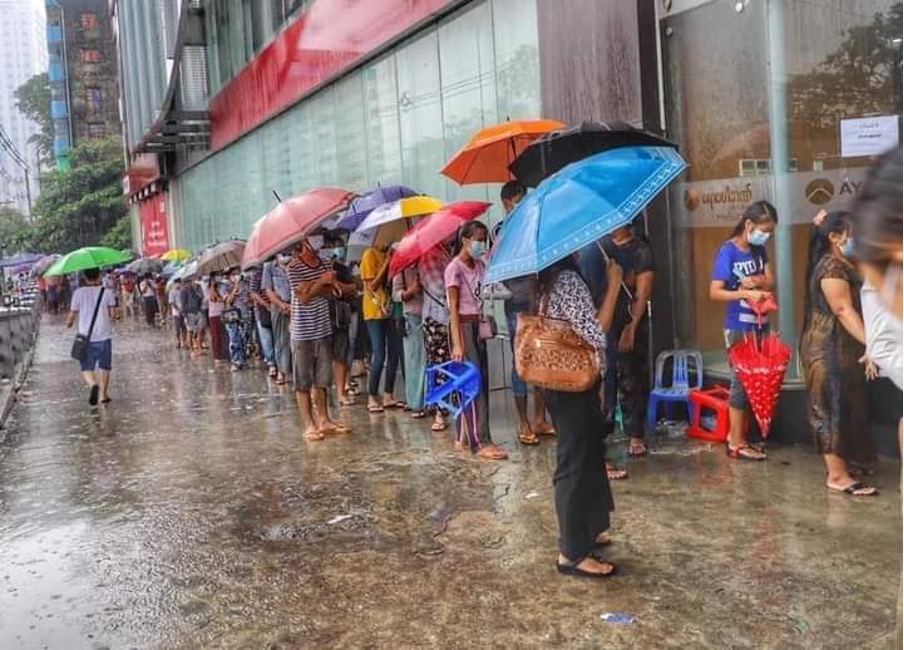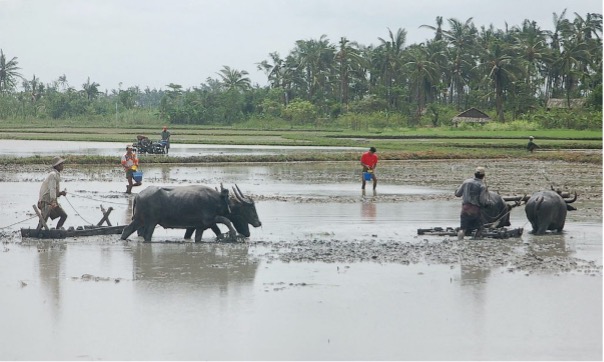Table of Contents
24th May 2021
Daw Aung San Suu Kyi appeared in court today.

Although it was only a first 30-minute hearing, the legal process could lead to her eventual imprisonment and the dissolution of her political party, the National League for Democracy (NLD).
Suu Kyi stands accused by the military of several charges ranging from possession of illegally imported walkie-talkies to violating the 1923 colonial-era Official Secrets Act.
But the reality, most Myanmar observers say, is that the top brass wants to punish the government she led since 2016 and nullify the outcome of the November 2020 election where the NLD scored yet another landslide victory, as it did in 2015 and 1990.
The eventual outcome of the court cases against Suu Kyi is not in doubt – she will inevitably be found guilty and banned from politics. That, in turn, could set the stage for new elections rigged in favour of the military and without the participation of the NLD.
Those verdicts, whenever they are handed down, will surely spark more furious unrest in a country that has descended into chaos and anarchy since the military made the fateful decision to seize power on the day a newly elected parliament was scheduled to meet for the first time in Naypyitaw.
At the same time, coup leader Senior General Min Aung Hlaing is coming under fire from within the military — not because of the power grab as such, but for his inability to consolidate it. Internally, he has reportedly been mocked as only being good at making donations to pagodas and for being “the prince of bangs and pots”, a reference to the way people across the country are venting their anger at the coup by banging pots and pans.
Among those arrested by junta forces are journalists, activists, health workers and teachers who have taken part in protests against the coup. According to a May 23 Reuters report quoting an official of the teachers’ federation who declined to give his name for fear of reprisals, 125,000 schoolteachers of the country’s total of 430,000 have been suspended.
The number of doctors and nurses who have lost their jobs is not known but is thought to be considerable. Many educated people, fearing arrests, have managed to leave the country leading to yet another brain drain, similar to those after the first military takeover in 1962 and the crushing of a pro-democracy uprising in 1988.
The country could tilt towards further anomie without a circuit breaker. Banks are not functioning and the economy is in a shambles amid countrywide strikes and unrest. There are rising reports of soldiers and police seemingly at random breaking into people’s homes, destroying furniture and stealing whatever they can lay their hands on.
Other reports indicate that soldiers and policemen have been given methamphetamine pills to jack them up before being deployed to crack down on protesters, which could explain their often erratic and wildly violent behaviour.
The only statement that came out of the May 24 court hearing was that a defiant Suu Kyi said that the NLD “was established by the people so the party will be there as long as the people are.” It’s impossible to predict how that short utterance from the country’s iconic democratic leader will impact or ignite an already volatile situation on the ground.
What is clear, however, is that she acknowledged her followers are now pitted against the military, an institution she had tried to accommodate and work with while in power.
It’s also clear that whatever sympathy and support the public may have had for the Tatmadaw are long gone as soldiers rampage, kill and loot with increasingly reckless abandon – a point that some say may be forming schisms in the military.
If Min Aung Hlaing is eventually replaced, which is still far from certain, it doesn’t mean his successor would take a more conciliatory approach to the country’s civilian leaders, including Suu Kyi, and her affiliated pro-democracy movement.
But as long as he remains in place and Suu Kyi is in the dock on trumped-up charges, Myanmar’s people-versus-the military struggle will likely accelerate and spread.
Source Asia Times May 24th, 2021.
Meanwhile, the junta have initiated attacks on monasteries and churches.
Below is a press release from the NUG (alternative government).

As the monsoon starts in Myanmar, queues still form at ATMs as people are desperate to access cash.

The economy is shrinking fast, and people are finding it difficult to access cash, and get paid. Many are out of work and those that are still working are finding it difficult to get paid as the banks are seized up.
The junta has just fired 125,000 out of a total of 400,000 teachers, which would put pressure on the school system if it wasn’t already hit by absentees and teachers joining the CDM.
The prospect of a poor rice season will have devastating consequences for millions of rural households, many of which were already struggling due to the impacts of COVID-19 last year.

In April, the World Bank warned that the fallout from the coup would likely “result in a sharp increase in poverty, heightened food security risks, and deeper destitution for those already poor”, and said the success of upcoming harvests would be “critical” for households reliant on agriculture.
The problem facing farmers this year is that agriculture supply shops are refusing to sell fertiliser and pesticides on credit.
Normally farmers buy on credit and pay the shops back after harvesting their crops or after receiving a loan from the state-run Myanma Agricultural Development Bank, he said. “But this year, the shop owners will only sell for cash and we don’t have the money.”
Shop owners said they were demanding cash from farmers because the companies that supply fertiliser are also insisting on being paid in cash due to the difficulty of withdrawing cash from banks amid a coup-induced crisis in the financial sector.
“It’s not the same as before,” said the owner of a farm supplies shop in nearby Sagagyi village, also in Danubyu Township. “We have to pay as soon as we receive deliveries and because we need money, we cannot sell to farmers on credit anymore.”
He said prices for agricultural inputs were rising by the day because most of the products are imported. Since the February 1 coup, the kyat has slumped from K1,335 to the US dollar to almost K1,700 – a decline of almost 30 percent – making imports more expensive.
Most brands of fertiliser have increased by around 15pc, but some have risen by as much as 40pc, he added.
“It’s difficult to predict the future financial situation. Sales are also lower than normal.”
Source Frontier May 24th, 2021.
This has all the hallmarks of a disaster in the making. By August the food shortages will become noticeable to the outside world and will be accompanied by the usual handwringing from the NGOs. It needs preparing for now, but NGOs get more publicity if they react to a disaster rather than try to prevent it. Of course, access to the country is difficult for them, but they have well-established PR that could alert the world to the issues now and put pressure on the regime. (Who unfortunately will see widespread famine as solving one of their problems).
Please share this article so that others can discover The BFD









